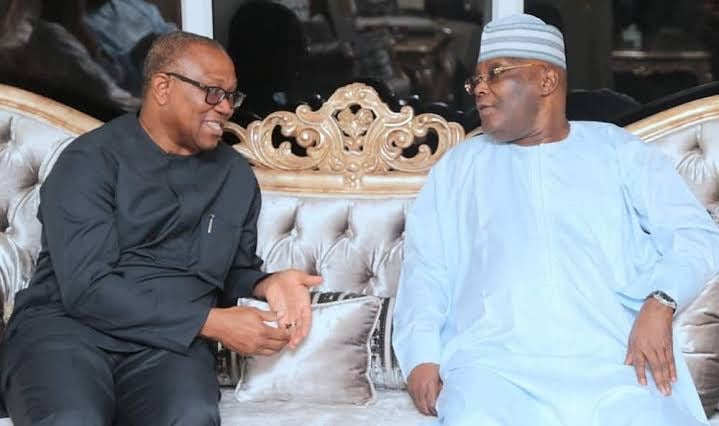
The prospects of a united opposition front ahead of Nigeria’s 2027 presidential elections have been described as unrealistic by Lere Olayinka, Senior Special Assistant on Public Communication and New Media to the Minister of the Federal Capital Territory, Nyesom Wike.
Speaking during a televised interview on Thursday, Olayinka dismissed recent efforts by former Vice President Atiku Abubakar to rally key opposition figures, including former Labour Party presidential candidate Peter Obi, into a coalition.
According to Olayinka, the coalition is “dead on arrival” due to what he described as irreconcilable differences between Atiku and Obi. He argued that both men are unwilling to cede ground on the question of who should lead the coalition into the 2027 elections.
“You cannot form a coalition around one man’s ambition,” Olayinka said, taking a direct jab at Atiku’s leadership of the initiative. “When the coalition is solely about advancing Alhaji Atiku Abubakar’s interests, it will fail before it even begins.”
He pointed out that while Atiku and Obi were once aligned as running mates in the 2019 presidential election under the Peoples Democratic Party (PDP), much has changed since their electoral defeat. Obi later broke ranks with the PDP to run under the Labour Party in 2023, amassing considerable grassroots support that has since elevated his national political stature.
“There’s no realistic scenario where Peter Obi will accept a backseat in any coalition driven by Atiku,” Olayinka insisted. “And at the same time, there’s little indication Atiku would step aside for Obi or anyone else.”
He also questioned the structural coherence of the proposed alliance, noting that such coalitions in Nigeria have historically been fragile and prone to collapse under the weight of personal ambition and conflicting political interests.
The opposition coalition, which Atiku is reportedly spearheading to unseat President Bola Tinubu in 2027, has yet to announce any formal structure, leadership arrangement, or consensus candidate—further fueling doubts about its viability.
Olayinka’s comments reflect growing skepticism within political circles about the possibility of reconciling the varied interests of Nigeria’s fragmented opposition.





